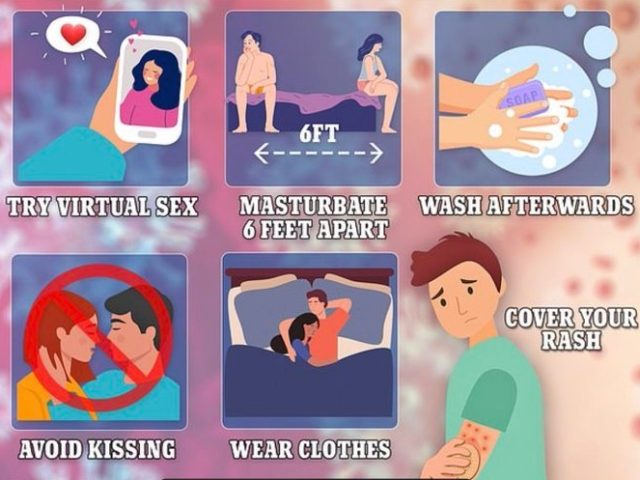The Centers for Disease Control and Prevention (CDC) has delivered intimate guidance for those considering sexual activity in an age of monkeypox. The tips come under the published heading Social Gatherings, Safer Sex and Monkeypox.
The CDC set out in its two-page release the death rate of monkeypox is thought to be one percent, but “possibly” higher in immunocompromised individuals, and therefore has a list of warnings, cautions, guidance and associated points to be taken into consideration by anyone considering spending time with another.
Some of the guidance includes masturbating at least six feet away from a partner, avoiding kissing, having virtual sex, and “having sex with your clothes on or covering areas where rash or sores are present.”
The CDC makes plain its advice comes because “monkeypox spreads through close skin-to-skin contact and any person can spread the disease.”
Additionally, those infected with monkeypox — or who are presumed to be carrying the virus — are asked to wash their hands along with other accoutrement including “fetish gear, sex toys, and any fabrics” that may have come into contact with infected areas during sexual intercourse.
The CDC says talking about monkeypox with an intended partner about lowering risk exposure might help:
Talk to your partner about any recent illness and be aware of new or unexplained sores or rashes on your body or your partner’s body, including the genitals and anus. If you or your partner have recently been sick, currently feel sick, or have a new or an unexplained rash or sores, do not have sex and see a healthcare provider. This is always a good plan, even if monkeypox isn’t in your area.
The CDC recommends visiting a health care provider if any concerning symptoms appear and to be prepared to potentially disclose the identities of people with whom you have had “close, personal, or sexual contact within the last 21 days” prior to the appointment, “including people you met through dating apps.”
“You might be asked to share this information if you have received a monkeypox diagnosis, to help stop the spread,” it warned.
The first case of the viral disease in the U.S. was diagnosed in a traveler who returned to Massachusetts from Canada last month.

COMMENTS
Please let us know if you're having issues with commenting.